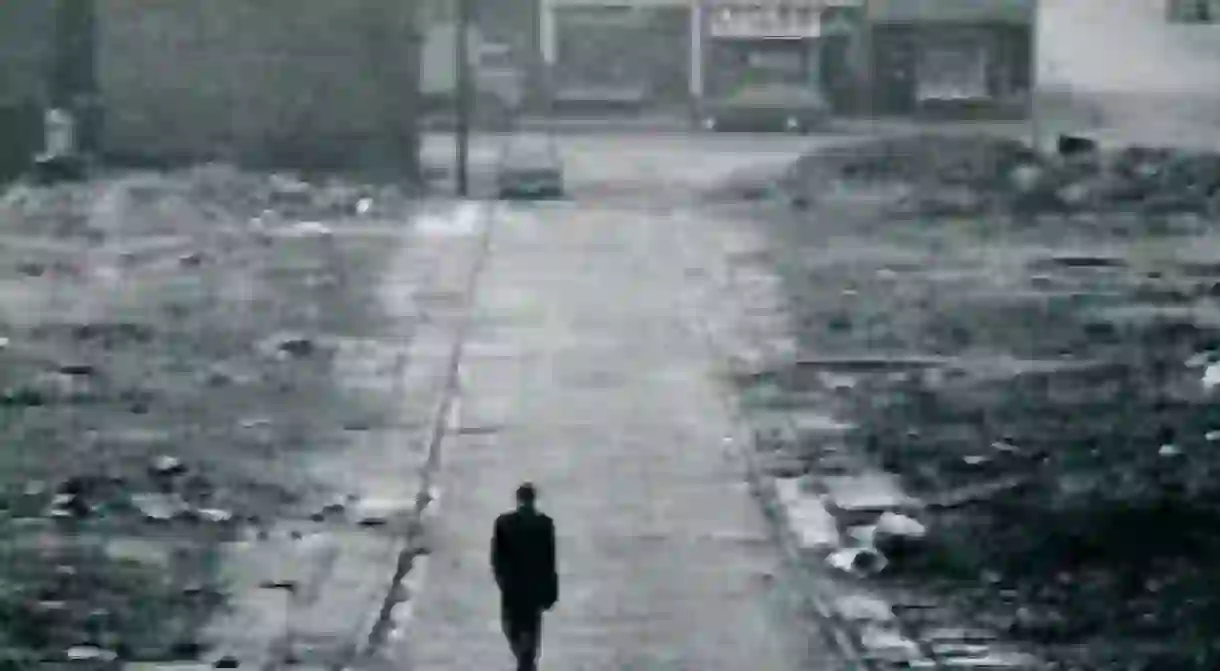Terence Davies: A Liverpool Life in Film

Terence Davies’ 2011 release, The Deep Blue Sea, won multiple awards and was nominated for a Golden Globe, further adding to his oeuvre of highly acclaimed work. We investigate this celebrated English filmmaker, looking back at three of his films and their particular relation to his home city of Liverpool.
Terence Davies was born in Kensington, Liverpool in 1945 to devoutly Catholic, working class parents. He was raised in the distinctive environment of this community of Liverpool; an environment characterised by strict conformity and a parsimoniousness which bordered on privation. His early childhood was by all accounts traumatic, as Davies found himself alienated from the parochial values of his family and his society. The memories of his upbringing, and his ambivalent nostalgia for the city of his birth, would form the basis of his most celebrated cinematic works.
Distant Voices, Still Lives (1988)
Davies’ first full length film is an autobiographical elegy for the Liverpool of his youth. It depicts the life of a working class Liverpudlian family in the years following the end of World War Two and features a coruscating performance by Pete Postlethwaite as the abusive father. The film traces the development of the family over the course of the 1950s and in doing so indirectly reflects the changes in post-war Britain in this period. The narrative of the film emerges from oblique snapshots of daily life, as the children of the family brave the abuse of their father and eventually grow up and marry. Music is central to the film as the humdrum lives of the characters are punctuated by beautiful renditions of music hall and blues staples, not in the conventional celebratory musical sense, but in a deeply mournful timbre which gives the film its elegiac quality.
Long Day Closes (1992)
The follow up to Distant Voices, Still Lives stays in the nostalgic and autobiographical vein of its predecessor, focusing as it does on the childhood of a young working class loner in post-war Liverpool. However Long Day Closes takes a slightly grimmer approach to its depiction of Liverpool working class life and also focuses on the transportative and romantic power of the cinema, in which the main character, Bud, finds refuge from the bullies in school and at home. Similar in tone and approach to Ken Loach’s Kes, Long Day Closes intimates that Bud feels a deep seated sense of alienation from the narrow old fashioned values of those around him, but that he is unable to express this alienation in terms that he, or anyone else, can understand.
Of Time and the City (2008)
Sixteen years after Long Day Closes, and with only two films to his name in the meantime, Davies returned to Liverpool to make Of Time and the City. Unlike his previous two films set in the city, this is a documentary which elucidates Davies’ relation to the city of his birth directly, through his inimitable narration. It is a personal vision of the city but also one which touches on the milestones of Liverpudlian and British history. It bitterly mocks the elaborate practices and institutions of the British state and crown whilst also reserving a level of affection and warmth for the working class world of Liverpool which once again returns to the elegiac style of Davies’ earlier films. It is as much a poetic depiction as a documentary, and the voiceover often mimics the tone and style of poets like TS Eliot and Dylan Thomas. In doing so it becomes a deeply personal evocation of the vagaries of time and memory as well as a poignant love letter to Liverpool’s past and present.
Image courtesy: 1: Jonathan Rosenbaum













